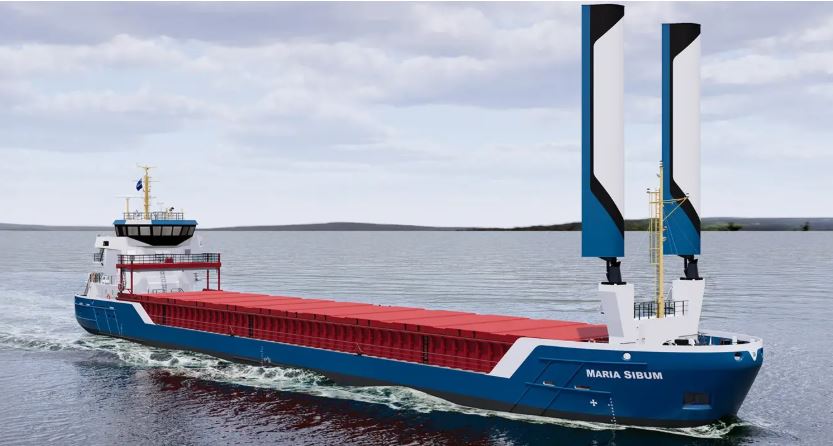 Reederei Bernd Sibum has received funding from the German Government under the NAMKü scheme to support sustainable modernisation of coastal ships, according to Damen's release.
Reederei Bernd Sibum has received funding from the German Government under the NAMKü scheme to support sustainable modernisation of coastal ships, according to Damen's release.
As a result, the four Damen Combi Freighters (CFтАп3850) currently under construction for the company will be upgraded to sail with significantly lower emissions.
The NAMKü funding, provided by the Federal Ministry of Digital Affairs and Transport (BMDV), aims to improve the efficiency and environmental footprint of shortтАСsea shipping and requires coтАСinvestment by the vessel owner.
Reederei Sibum placed the order for the four CFтАп3850 vessels in 2024.
The design already delivers a 30тАп% reduction in fuel consumption.
The vessels are being built at Damen Yichang Shipyard with capability to operate entirely on biofuel, equipped with batteries for peak shaving and port operations, and are hybridтАСready.
Under the NAMKü award, the vessels will now receive a full hybrid propulsion upgrade with PTO/PTI (power takeтАСoff / power takeтАСin) enabling fully electric propulsion and providing redundancy for the diesel engine.
They will also be fitted with Econowind VentoFoils, a windтАСassisted propulsion system that adjusts automatically and is expected to reduce fuel consumption by approximately 12.5тАп% over the year.
In port, the vessels can operate emissionsтАСfree by using batteries for manoeuvring and short stays or switching to shore power for longer calls.
Heat recovery systems will capture waste heat from auxiliary engines, eliminating gasoil consumption for the oilтАСfired boiler.
Damen Cargo Vessels Commercial Director Remko Bouma said, “We have designed the latest generation of CFтАп3850 with the aim of achieving the increased efficiency and reduced environmental impact required of vessel operators today. Reederei Sibum, with the support of the German Government, are thinking beyond the present and preparing their fleet for the future. They are to be praised for their pioneering approach to maritime sustainability. The bold steps they, and other forward thinking vessel operators, are taking are worthy of wider industry recognition. In the coming years, these vessels are going to need increased access to relevant infrastructure, for example, the shore power connectivity required to operate zero emissions in port. Such infrastructure will play a vital role in realising the full potential of the investments that are being made in maritime innovations and pave the way to zero emission operations.”
Reederei Bernd Sibum is a German familyтАСowned shipping company based in Haren, Germany, with a history spanning over seven decades. It operates in the shortтАСsea coastal vessel segment and is now investing in newbuild vessels with high fuel efficiency and modular design for future upgrades. In 2024, the company ordered four Damen CFтАп3850 vessels with sustainability features such as biofuel, batteries, and hybrid readiness.
Damen Shipyards Group is a NetherlandsтАСbased shipbuilder specialising in standardised vessel types for the shortтАСsea trade, including combi freighters, tankers, and container feeders. The company employs a modular construction strategy that allows vessels to be built ready for rapid upgrades or retrofit with minimal downtime. Damen’s CFтАп3850 design has been updated and has delivered significant fuel savings and emissions reductions.



